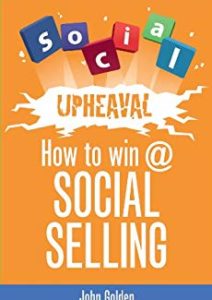Henry Ford once remarked, “A business absolutely devoted to service will have only one worry about profits. They will be embarrassingly large.” It must be true given the sheer number of case studies and books that have been written on the subject. It seems that for a great many businesses, exceptional service has been a competitive differentiator. One that immediately comes to mind is the “Nordstrom Way.”
Given such staggering evidence, nobody is going to argue with the power of great customer service and follow-up for the building of customer loyalty and satisfaction. Not long ago I posted this question to a gathering of about 30 sales professionals: What was the one major change they were observing in buyer behavior? Their unanimous answer was that customer demand for instantaneous service and support had dramatically increased.
What’s really interesting is that this instant service expectation wasn’t just defined as “post-sale” but was expected more and more in the pre-sales cycle. Prospects, it seems, want to be treated as if they are already customers. They want to test things more, gather more information than ever before, and have any issues resolved yesterday. Personally, though, I don’t find this the least bit surprising.
Our on-demand world with its ability to provide instant gratification by the nanosecond is reorienting our expectations of each other. If I can live stream my son skateboarding with my smartphone for anyone across the globe to watch in real time, then why can’t I have a salesperson answer a question I have at 2pm on a Saturday afternoon? It is running contrary to the way we operate in our everyday lives to wait until Monday for the reply. This is putting an immense amount of pressure on salespeople and other support resources. What to do?
Well I believe, just like anything else, you need to first accept the reality of the situation and secondly get ahead of it.
1. Preempt: Leverage the tribal knowledge in your organization and try to capture as many data points from all the different functions (from sales to legal and back) about what prospects are looking for during the sales cycle in terms of information, sample contract terms, demos, access to product etc. and make sure you are as prepared as possible to be able to supply this quickly and easily. Now more than ever is the time to be prepared and have everything at hand – this will reduce scrambling and increase response time.
2. Align: Make sure you spend time with the prospect/customer understanding their expectations of response times, and service and support follow-up. The more you can work with them to categorize and segment the different kinds of needs they will have in terms of urgency, the better your organization can respond appropriately. If the customer knows that something they mark or refer to as “Urgent” will get your immediate attention whereas something they mark or refer to as “Important but not urgent” will take a day or two (or whatever timeframe you mutually agreed) their confidence in your organization will naturally increase.
3. Accept: The other important component is to accept that this is the world we live in and look at how you can configure your organization and its work practices to meet these increased expectations of instantaneous service. This may mean that even small businesses or those with limited resources need to look at having people on call in the evenings or weekends to respond not just to customers, but prospects, too. The beauty of technology is, of course, that this does not necessarily require them sitting at desk as long as they have the mobile tools and access to respond from wherever they happen to be. It also means that salespeople need to over-communicate their whereabouts to prospects/customers so if they are unavailable during a weekend or evening the prospect/customer already knows this and doesn’t expect immediate response.
Again the reality (excuse my overuse of the word but I try to only deal with realities!) is that technology is continually evolving our response expectations, and we in turn are projecting these expectations onto everyone we come into contact with–whether in business or our personal lives. And so our business practices need to adapt to this evolution.
Aren’t we ALL demanding customers?















































Comments